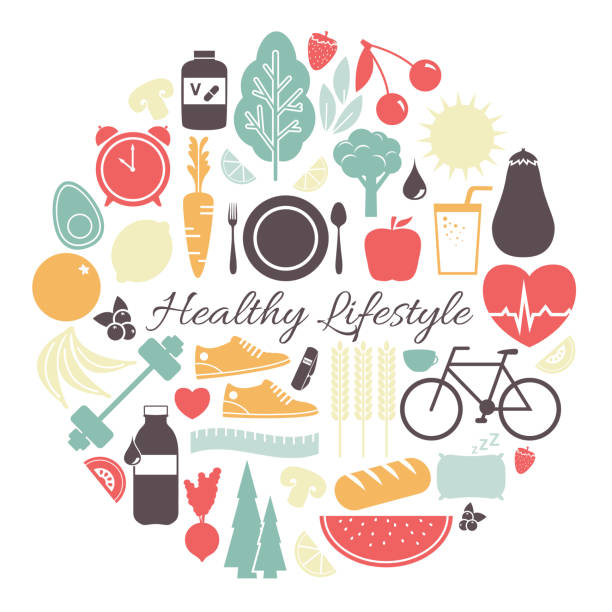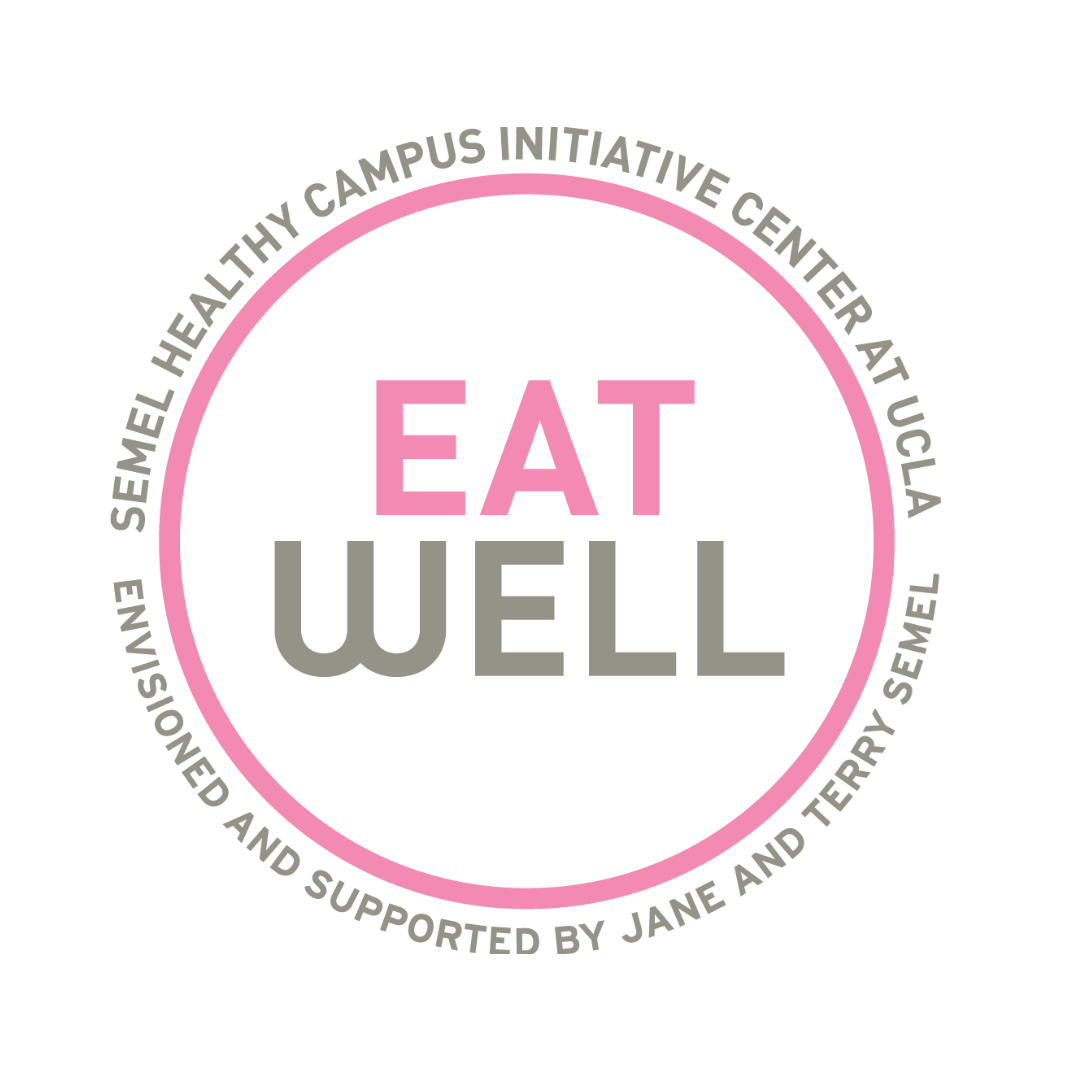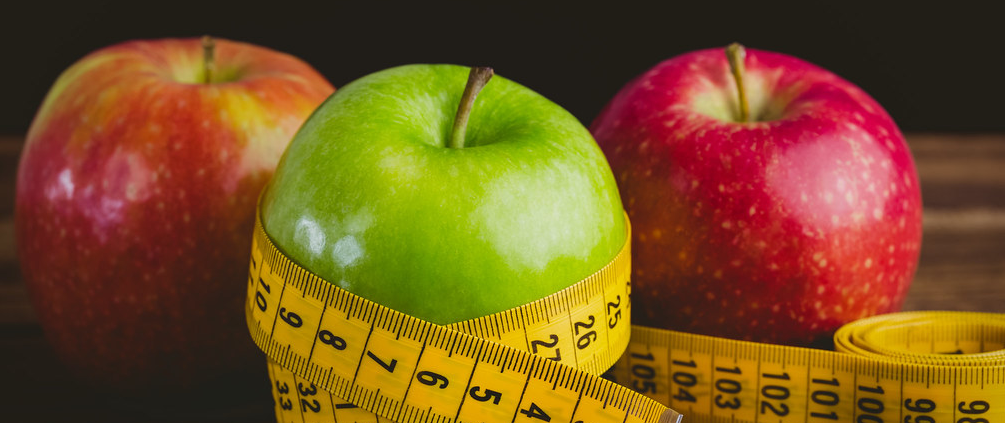Building a Healthy Relationship with Food
In a perfect world, we would eat in harmony with our hunger signals, fully enjoy our meals, and choose more nutritious foods when possible. But this is often much more difficult than it sounds. Under societal pressure to look a certain way, 91% of college-aged women report having tried dieting at some point, and 61% of females and 28% of males report experiencing disordered eating. “Eating healthy” is not just about the food you eat, but is also about the relationship you have with food.
So what does a healthy relationship with food look like? According to the National Eating Disorders Association, “[a healthy] relationship includes relaxed eating, choosing preferences over positions, and practicing balance and flexibility in your eating.”
In this context, “relaxed eating” means eating in accordance with your hunger signals and understanding that these signals may change with your routine, moods, and physical demands. It also means that eating differently from one day to another should be no cause for alarm, judgement, or punishment.
“Preferences” refers to foods you prefer to eat, while “positions” refers to rigid habits and a fear of choosing other options. Thus, “choosing preferences over positions” means understanding that your preferences might not be suitable for every situation, and being content to choose from the other existing options.
“Balance” means “everything in moderation,” including all food groups. Unless you are avoiding certain foods for religious or ethical reasons, or have been instructed to do so by a doctor, there is no need to avoid eating any particular food. “Balance” also means eating for both pleasure and hunger, and avoiding diets (spoiler alert: diets don’t work anyway).
“Flexibility” is defined as “the absence of strict rules surrounding eating and food habits.” This includes removing the labels of “good/clean food” and “bad/junk food.” Some foods are more nutritious than others, but a healthy diet –and importantly, a healthy relationship with food– usually includes all types of foods.
In other words, a healthy relationship with food means the absence of obsession, restriction, anxiety, and guilt. In the second episode of the LiveWell podcast, Dr. Janet Tomiyama (PhD at UCLA in 2009) discusses her research on dieting and weight stigma, and the surprising factors that can drive us to eat, or not eat.
Why do Diets fail?
In this article, we will use Dr. Tomiyama’s definition of dieting: “cutting calories in order to lose weight.” This is often executed through commercial diet systems such as Weight Watchers, diets that remove specific macronutrients such as the keto diet and the Atkin’s diet, fad diets such as juice fasting, or simply counting calories and aiming below a certain daily threshold.
According to the Boston Medical Center, approximately 45 million Americans go on a diet each year, but there is little to no statistical evidence that diets result in long-term weight loss. Summed up in one sentence, Tomiyama describes her research as follows: “the main theme that goes through my research is that [a] punitive perspective on weight, size, stress eating and hanging out with friends is not productive.”
In fact, Tomiyama’s PhD research found that dieting releases stress hormones (cortisol), which may actually cause further weight gain. Even if short term weight loss occurs, the majority of studies she reviewed found that dieting is overall not a successful weight loss strategy.
This is logical, considering that deprivation of any sort can cause stress, even when the deprivation is self-inflicted. If you are considering a change in the way you eat, Tomiyama recommends focusing on adding more nutritious, healthful foods, rather than reducing “bad foods.” She also hopes that society’s view of health will shift to a focus on eating well, moving, less stress, sleeping well, and having good friendships without mentioning weight whatsoever.
In general, mentioning weight is not just rude, but may result in poorer health outcomes. Another paper by Dr. Tomiyama reveals that experiencing weight stigma is stressful, and as mentioned earlier, stress can cause further weight gain. Additionally, Tomiyama reports that people with a higher BMI may avoid the doctor more frequently due to fear of being shamed for their weight, which may result in health issues unrelated to their size. Again, it is best to avoid using weight as a metric for how healthy a person is.

Tracking calories vs. intuitive eating
Eating is not an exact science, and while counting calories in itself does not release cortisol, Tomiyama found that the practice increases perceived stress regardless. Tracking calories and macros (short for macronutrients: carbohydrates, fat, and protein) is popular among bodybuilders and athletes, but may not be necessary for the average person and may actually be detrimental for those that have a history of disordered eating. This article might help if you are deciding whether tracking macros would be beneficial to you.
The alternative to tracking your daily intake is intuitive eating. Intuitive eating means listening to your body, noticing how some foods might make you feel differently than other foods do, and eating when you are hungry, until you are full. It means rejecting diet culture, making eating enjoyable and non-stressful, and respecting yourself and your specific needs.
A search for a healthy eating practice that does not involve calories whatsoever brings us to the 80/20 approach. The 80/20 approach to eating suggests that approximately 80% of your foods should be minimally processed, plant-focused foods, and 20% is anything you would like to eat, perhaps the foods that you consider comfort foods. Although you’re eating 20% of less nutritious foods, there is no need to feel any remorse or guilt — comfort foods may actually increase your health in an unexpected way!
Can “unhealthy” foods sometimes be good for you?
During an interview with Kaitlin Reid, MPH, RDN, for a previous blog post, I was curious about her experience with common misconceptions about food. Her response was surprising: “The main misconception that people have about food is that there are ‘good foods’ and ‘bad foods’.” She explained that labeling foods in such a way causes unnecessary stress when we eat ‘bad foods’, when in reality we should be able to enjoy these foods and move on.
What’s more, eating “comfort foods” without any guilt attached may be beneficial in reducing stress. Another major finding in Dr. Tomiyama’s research is that highly stressed individuals tend to engage in comfort eating, and that doing so results in lower cortisol levels. In the LiveWell podcast, she reveals that she is also currently looking into the possibility of transforming fruits and vegetables into “comfort foods” using Pavlovian conditioning.
While Tomiyama recognizes the ability of comfort eating to reduce stress, she also encourages using social rewards in place of food rewards when possible, and using a variety of other strategies to reduce stress. She also reminds podcast listeners, “people who don’t sleep well also find it really difficult to eat well. Sleep deprivation interferes with the parts of your brain that help you make healthy choices.”
Reducing stress and sleeping more can improve not only your relationship with food, but also with yourself and with others. These relationships all contribute to overall health — a healthy relationship with food is just one piece in the multi-faceted puzzle of health and wellness. This relationship looks different for everyone, and it’s always important to be compassionate and open-minded, both with yourself and others. Here’s to listening to our bodies, being kind to ourselves, and making eating enjoyable!
If you think you or someone you love might be suffering from an eating disorder, please contact UCLA Counseling and Psychological Services (CAPS) at (310) 825-0768, or the National Eating Disorders Association (NEDA) Helpline at (800) 931-2237.
Patience Olsen is an undergraduate student at UCLA majoring in Civil and Environmental Engineering. In addition to blogging for the EatWell pod, she is a PD for the ASCE Environmental Design project, the Events Coordinator/Publicity Director for AWWA, and a member of the Club Sports Climbing Team.



